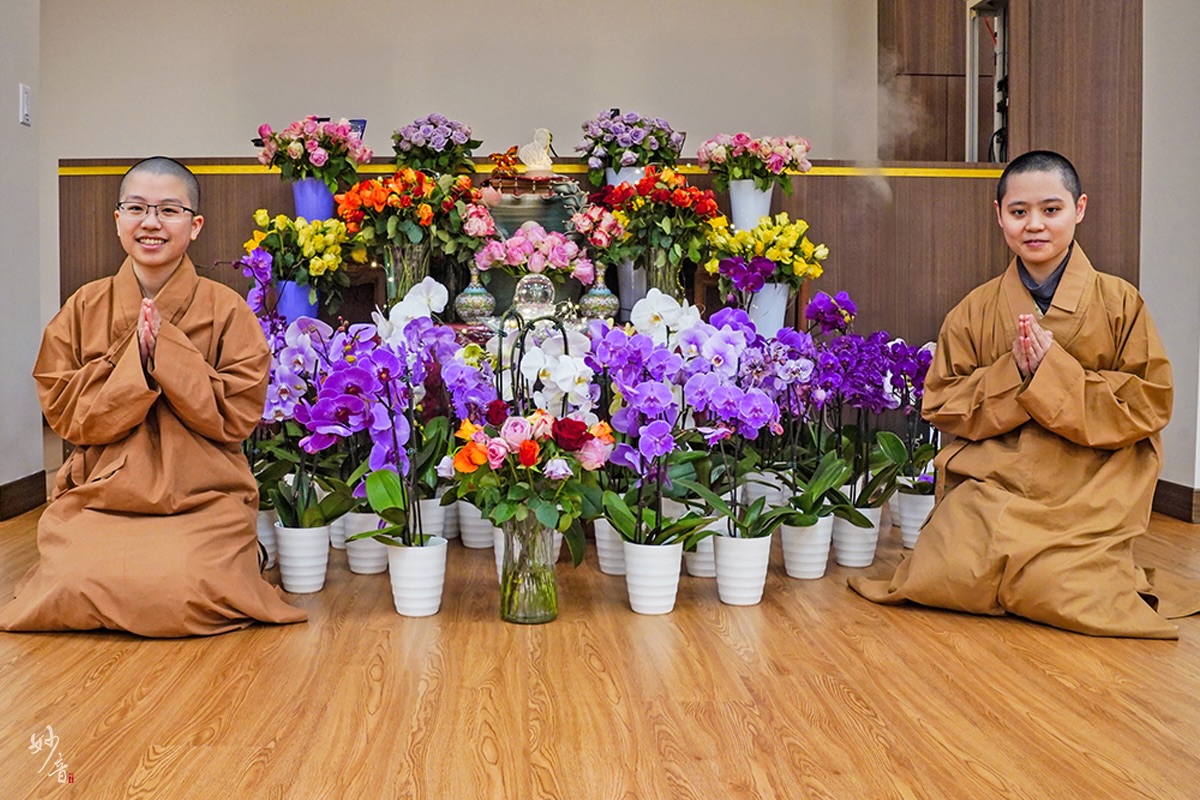且聽風吟 靜待花開
觀點分享 | 2025/10/30

寺院每年都會收到一些蘭花作為禮物,而作為殿堂管理者的我,自然肩負起照顧蘭花的責任。花謝後,我始終盼望它們能夠再次綻放。於是,我每週規律地澆水,細心擦拭葉片,並將它們擺放在充足光線的位置,所有這些悉心的照顧注入了我一遍又一遍的期待。然而令人遺憾的是,兩年過去了,它們卻始終沒有再開花。
「唉,蘭花也太難伺候了吧……」我感慨道。
直到有一天,我遇到了一位法師。我聽說他是一名養蘭花的高手。他的蘭花不但每年都開花,其中一株甚至可以開出16朵花,而且花期長達數月之久,實在令人驚嘆!
「你是怎麼做到的?蘭花不是很難照顧嗎?」我好奇地問。
「一旦你了解它們的特性,就不難了。」她說。
法師告訴我,蘭花喜歡潮濕,但又不能讓根部長時間泡在濕土裡,所以他每天淋濕根部後,都會確保多餘的水能充分排出。蘭花適應涼爽的氣候,但溫度不能低於0°C。所以,當氣溫在7°C至20°C之間時,他會將蘭花放在戶外,待天氣變冷時,再移回室內。此外,蘭花不喜歡直射陽光,但依然需要充足的散射光,所以他會把它們放在窗邊最合適的位置。
法師還提到,雖然蘭花不喜歡被頻繁移動,但它們依舊需要關愛。因此,他每天都會探望它們,並且感謝它們為寺院帶來美麗的景致。他的話深深震撼了我,原來,我未曾真正了解蘭花,始終以非常粗淺的概念照顧著它們,甚至心生埋怨。一旦掌握住關鍵因素,其實它們並不難養護。我想,法師的這份耐心和用心,或許才是他養護蘭花如此成功的祕訣所在吧!
這不僅讓我反思:如果我對蘭花如此,是否也對其他人如此?可能僅僅因為他們有著與我不同的習慣或思維方式,我便輕易地認定他們是「錯誤」、「困難」、「莫名其妙」,甚至「無法改變」的。所有的誤解,歸根究底源自於我的無知與不求甚解。是蘭花提醒了我,待人處事不應過於武斷,而是需要更多的包容與理解。
在未來的日子裡,我期許自己能更努力去理解別人,用心傾聽、感受、揣摩他人的需求,並且學習在他們需要時提供幫助。就像老師在《心之勇士》中提到:「要學習跟別人溝通,體會他人的需要,然後在他人需要的時刻能夠提供幫助。人與人之間如果能努力達成理解,共同成辦善業,就如溫暖的風,會遇春天的花樹,每個人都想看到理解的鮮花盛開,感受春風拂面。」
原來,蘭花一點也不難伺候;它教會了我學習如何理解身旁的人,甚至開始欣賞那些曾被我忽視,卻一直在生命中綻放的美麗。
作者:聞方
【Whispers of the Wind: Awaiting Blooms】
Every year, the monastery receives orchids as gifts, and as the caretaker of the Prayer Hall, I naturally tend to them. Despite my efforts—watering, cleaning, and ensuring good light—two years have passed, and they’ve never bloomed again.
“Orchids are really hard to deal with…” I sighed.
Then I met Venerable Amanda, an orchid expert whose plants flourish annually. One even had 16 flowers lasting months!
“How do you do it? Aren’t orchids difficult to take care of?” I asked.
“Once you understand them, it’s not hard,” she replied.
She explained that orchids need humidity but not soaked roots, so she drains them daily. They thrive in cool climates between 7°C and 20°C, so she takes them in and out of the house frequently for the perfect temperature. Though they can’t stand direct sunlight, they still need plenty of light, so she found a spot for them on the windowsill. And though they dislike frequent moves, they still need lots of love, so she visits them daily to thank them for the beauty they bring.
Her insights made me realize that perhaps patience and understanding are key.
It also made me reflect on how I treat others. Like these orchids, do I see others as “difficult” or “strange” without getting to know them, simply because of their different habits and thinking patterns? I realized these misunderstandings come from my own ignorance.
In the days to come, I hope to understand others more by listening carefully to their needs, giving a helping hand when needed. Like this quote in “Kindling Hope”: “Let us follow suit, radiating like spring flowers, offering our most sincere effort for others, assisting them on their paths away from suffering and toward happiness. This desire is most precious.”
Orchids aren’t so difficult to deal with after all—they taught me to appreciate the beauty around me that I often overlook.